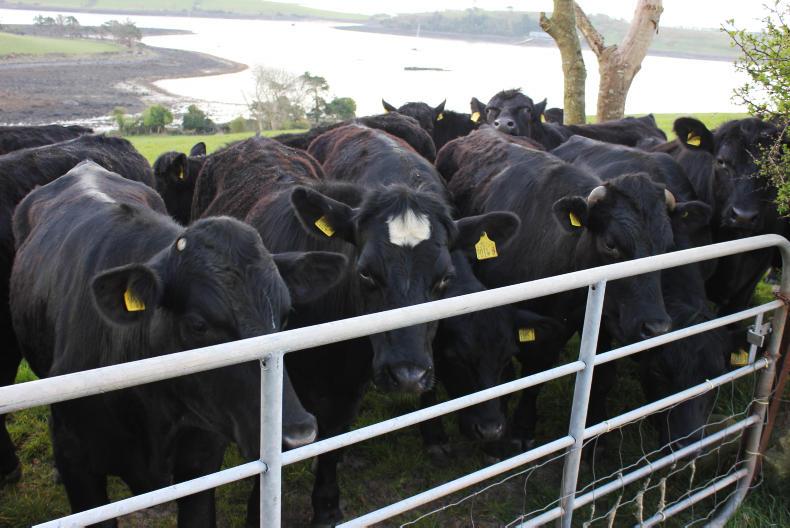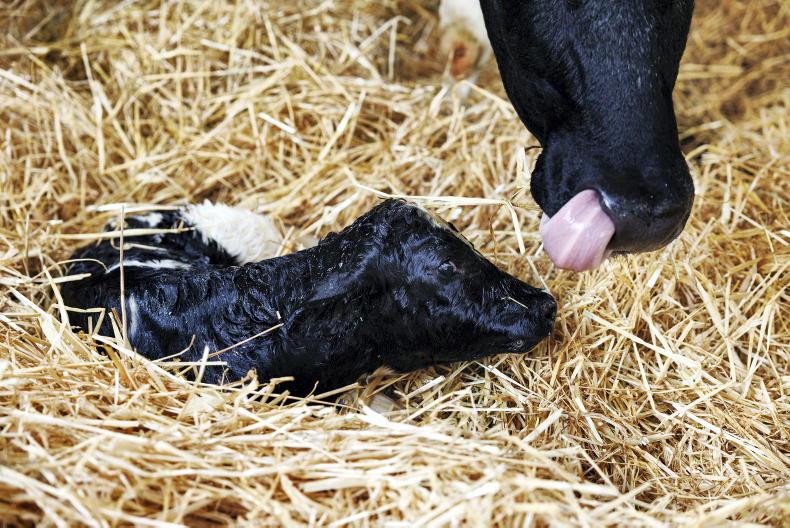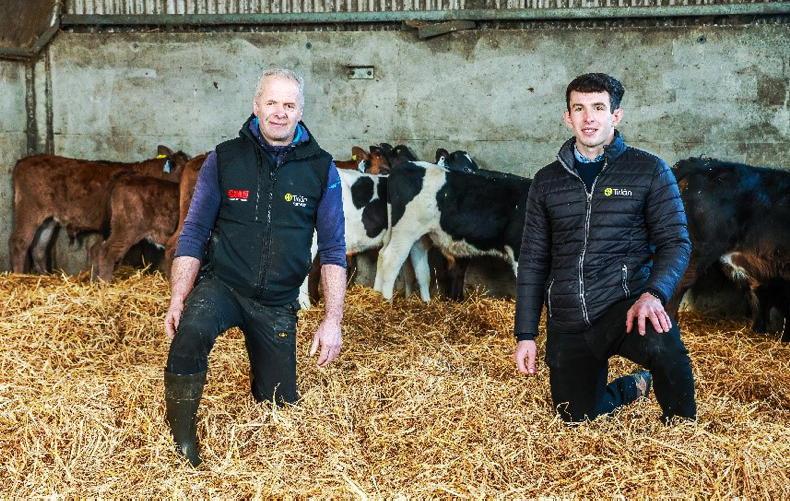Farmers across five sectors are set to receive funding from the £25m coronavirus support package coming from the Stormont Executive.
How it will be divided up was confirmed on Tuesday, with the aim to get most of the money paid out in August. Before that can happen, legislation must be laid at Stormont, a process that can normally take up to 10 weeks, although it is hoped it can be pushed through in six.
Once the legislation is in place, application forms can then be issued to farmers.
The main principle is that the money is for those most financially hit by the coronavirus pandemic, backed up by evidence.
DAERA must comply with EU State Aid rules, which mean it cannot provide support in a way that might distort the market. So, for example, money cannot go to compensate for wool that has not yet actually been sold. These rules also made it difficult to provide support to broiler breeders, despite a recognition that they have been financially hit.
DAERA officials acknowledge that the overall package might not properly cover everyone, but they must balance that against a need to get money paid out quickly and as simply as possible.
In total, £21.4m has been allocated, and with an extra £3.6m found within DAERA coffers, it means around £7m is available for a further package later in the year (if required).
Dairy
Around half of the current pot is going to dairy farmers (£11m), who will receive 1.1 to 1.2p/l on all milk produced in the four months from March to June. The calculations are based on a February reference price of 26.7p/l.
The total loss to the industry is calculated at £15m, but to allow for the fact that many dairy farmers availed of other government schemes (eg self-employed income support and bounce back loans), DAERA are compensating for 80% of losses.
DAERA will work out individual payments based on volumes supplied to processors. In practice, the data on volumes supplied in June might not be fully known in time for an August pay out, so it might be necessary to issue a balance payment later in the year.
One complicating issue is milk bought in fixed-price arrangements. Where the fixed price is above the February reference of 26.7p/l, the relevant volumes are to be excluded from the support payment. This affects all processors, bar Glanbia Cheese and Strathroy. The most impacted is understood to be Dale Farm, where around 40% of suppliers have a proportion of milk in fixed price arrangements set at 27 and 28p/l.
Beef and sheep
Unlike dairy, beef and sheep farmers are being compensated for 100% of losses due to coronavirus, as they are less likely to have received a significant amount of money from the self-employed scheme (given it is based on profits).
In total, £7m is going to beef, made up of two payments across all cattle (including cull cows) slaughtered. The first is £40/head for those slaughtered in the seven-week period from the third week of March onwards – to cover the significant dip in prices that occurred over this period. In addition, in recognition that the wider beef trade has been affected by the coronavirus since the start of the year, there is a further £33/head on all cattle slaughtered from mid-February to the end of June.
The money is going to the person who owned the animals for at least 30 days in the run up to slaughter, so it means a farmer, not a dealer or factory agent, gets the payment. DAERA will use APHIS records to identify those potentially eligible.
Sheep
While the market for sheep has remained relatively strong this year, prices did take a hit after lockdown was announced. Farmers slaughtering sheep, both in NI and the Republic of Ireland, in the four weeks from week beginning 30 March will receive £6.88/head. It is a total package worth £232,000. Again APHIS will be used to identify eligible animals and producers.
Potatoes
There is also potentially £1.2m to £1.6m going to potato producers to cover 80% of their losses due to the coronavirus lockdown.
Some of the details are still to be worked out, including a reference price before lockdown. The initial calculations are based on a survey of growers, and a compensation rate up to £140/t has been suggested. However, the next stage is to ask growers for actual evidence of prices received in recent weeks, and establish what potatoes are still in store.
Horticulture
That leaves the ornamental horticulture sector, who will receive support estimated between £1.2m and £1.6m to help cover the losses due to the closure of garden centres.
Reaction
Commenting on the wider support package, UFU President Ivor Ferguson congratulated Minister Poots on a “fantastic job” and said members were grateful for the support coming from the NI Executive.
NI is the only devolved region in the UK to get a financial support package across sectors.
Read more
NI support package gets £3.6m top-up
Poots hits out at divisive debate over £25m
Farmers across five sectors are set to receive funding from the £25m coronavirus support package coming from the Stormont Executive.
How it will be divided up was confirmed on Tuesday, with the aim to get most of the money paid out in August. Before that can happen, legislation must be laid at Stormont, a process that can normally take up to 10 weeks, although it is hoped it can be pushed through in six.
Once the legislation is in place, application forms can then be issued to farmers.
The main principle is that the money is for those most financially hit by the coronavirus pandemic, backed up by evidence.
DAERA must comply with EU State Aid rules, which mean it cannot provide support in a way that might distort the market. So, for example, money cannot go to compensate for wool that has not yet actually been sold. These rules also made it difficult to provide support to broiler breeders, despite a recognition that they have been financially hit.
DAERA officials acknowledge that the overall package might not properly cover everyone, but they must balance that against a need to get money paid out quickly and as simply as possible.
In total, £21.4m has been allocated, and with an extra £3.6m found within DAERA coffers, it means around £7m is available for a further package later in the year (if required).
Dairy
Around half of the current pot is going to dairy farmers (£11m), who will receive 1.1 to 1.2p/l on all milk produced in the four months from March to June. The calculations are based on a February reference price of 26.7p/l.
The total loss to the industry is calculated at £15m, but to allow for the fact that many dairy farmers availed of other government schemes (eg self-employed income support and bounce back loans), DAERA are compensating for 80% of losses.
DAERA will work out individual payments based on volumes supplied to processors. In practice, the data on volumes supplied in June might not be fully known in time for an August pay out, so it might be necessary to issue a balance payment later in the year.
One complicating issue is milk bought in fixed-price arrangements. Where the fixed price is above the February reference of 26.7p/l, the relevant volumes are to be excluded from the support payment. This affects all processors, bar Glanbia Cheese and Strathroy. The most impacted is understood to be Dale Farm, where around 40% of suppliers have a proportion of milk in fixed price arrangements set at 27 and 28p/l.
Beef and sheep
Unlike dairy, beef and sheep farmers are being compensated for 100% of losses due to coronavirus, as they are less likely to have received a significant amount of money from the self-employed scheme (given it is based on profits).
In total, £7m is going to beef, made up of two payments across all cattle (including cull cows) slaughtered. The first is £40/head for those slaughtered in the seven-week period from the third week of March onwards – to cover the significant dip in prices that occurred over this period. In addition, in recognition that the wider beef trade has been affected by the coronavirus since the start of the year, there is a further £33/head on all cattle slaughtered from mid-February to the end of June.
The money is going to the person who owned the animals for at least 30 days in the run up to slaughter, so it means a farmer, not a dealer or factory agent, gets the payment. DAERA will use APHIS records to identify those potentially eligible.
Sheep
While the market for sheep has remained relatively strong this year, prices did take a hit after lockdown was announced. Farmers slaughtering sheep, both in NI and the Republic of Ireland, in the four weeks from week beginning 30 March will receive £6.88/head. It is a total package worth £232,000. Again APHIS will be used to identify eligible animals and producers.
Potatoes
There is also potentially £1.2m to £1.6m going to potato producers to cover 80% of their losses due to the coronavirus lockdown.
Some of the details are still to be worked out, including a reference price before lockdown. The initial calculations are based on a survey of growers, and a compensation rate up to £140/t has been suggested. However, the next stage is to ask growers for actual evidence of prices received in recent weeks, and establish what potatoes are still in store.
Horticulture
That leaves the ornamental horticulture sector, who will receive support estimated between £1.2m and £1.6m to help cover the losses due to the closure of garden centres.
Reaction
Commenting on the wider support package, UFU President Ivor Ferguson congratulated Minister Poots on a “fantastic job” and said members were grateful for the support coming from the NI Executive.
NI is the only devolved region in the UK to get a financial support package across sectors.
Read more
NI support package gets £3.6m top-up
Poots hits out at divisive debate over £25m









SHARING OPTIONS